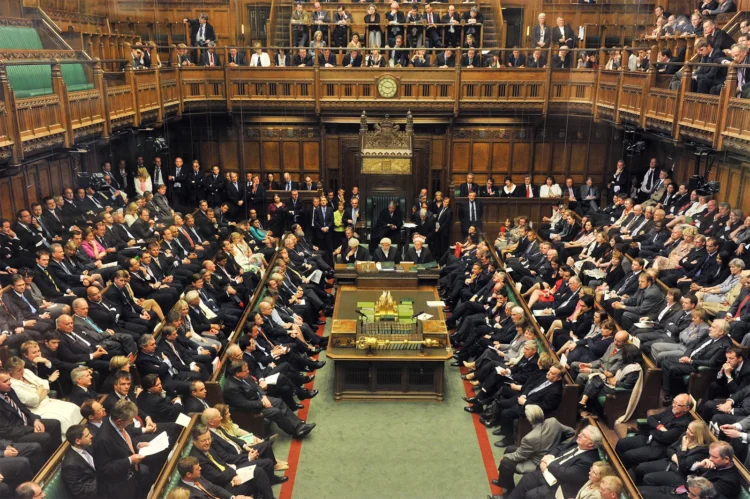By Ben Kerrigan-
The British government appears to be evading transparency over the protocol for invitation to the Queen’s funeral
Repeated requests made to The House Of Commons and The Department of Media and Culture have still yielded no definitive responses.
Following the recent ruling that Gavin Williamson bullied chief Whip, Wendy Morton over his exclusion from an invite to the funeral of the late Queen Elizabeth, it has become important to establish why he was excluded, and if those reasons were defensible.
An investigation by this publication aimed at getting to the matter of the issue has so far produced stumbling blocks, apart from the Independent Expert Panel which has been co-operative.
However, Ian Bradsha, Secretary to the Independent Expert Panel, told The Eye Of Media.Com that The Department For Culture Media and Sport are the lead government department for ceremonials, only for representatives of that department to claim to have no knowledge.
On Wednesday, The Department for Culture Media and Sport said they would forward our inquiry to a Cabinet member, but no response has of yet been received.
Williamson was accused of sending intimidating text messages to Ms Morton, believing that the reason for his exclusion was because of his failure to support then prime minister, Liz Truss during her candidacy for the position of prime minister.
Rishi Sunak eventually became prime minister following an overwhelming vote in parliament which did not involve all party members. Only members of parliament were allowed to vote.
The former education Secretary held the view he was not invited because he had not supported Ms Truss ambition to become prime minister.
He was so offended that he embarked on what was concluded to be bullying in his communication with Ms Merton, telling her in a text message that there is a fxxxxxx price for everything.
Bullying in government has always been a matter of serious concern, especially as law makers are expected to set an example for the rest of society, and not be part of the problem.
However, a separate question arises as to whether Williamson, as Education Secretary was entitled to be invited to the Queen’s funeral. It is unclear whether there are any protocols that determine who in parliament is invited to national events like the Queen’s funeral.
Understanding what protocols, if any, are in place, will put in matters in proper perspective with respect to Williamson’s conduct.
It would also assist in determining whether Williamson himself was badly treated, despite his unacceptable bullying, and also whether Liz Truss herself was presiding over a bullish culture by wrongly excluding people from an invitation to the Queen’s funeral.
The Independent Expert Panel’s Report
The Independent Expert Panel (IEP) recently released a report that The report stated that Sir Gavin Williamson should apologize to Members of Parliament for his alleged bullying of former chief whip Wendy Morton.
Quite notably, the report overruled that of Standard’s Commissioner, Daniel Greenburg who himself had overruled an earlier decision concluding that Williamson conduct towards Ms Merton amounted to bullying.
The exclusion of a former cabinet minister from a national event as significant as the late Queen’s funeral is a matter that cannot be taken lightly.
There is a pressing need to establish the reasons behind Sir Gavin Williamson’s absence. This goes beyond mere curiosity; it is a matter of public interest to understand the criteria and decision-making process for extending invitations to such solemn and nationally significant occasions.
Question of Protocol in National Funerals
The issue of who is invited to national funerals, particularly those of reigning monarchs, is a matter deeply rooted in protocol and tradition. National funerals are not just solemn ceremonies but also represent the collective respect and mourning of a nation for its departed leaders.
Yet, The Standard Committee has today not responded to The Eye Of Media.Com’s request seeking an explanation to why it dismissed Ms Morton’s complaints, suggesting support for the former education secretary’s grievance.
The question of protocol and adherence to established norms and conventions becomes crucial in determining the guest list.
Allegations of Bullying and Their Potential Impact
Adding complexity to this situation are the longstanding allegations of bullying that have swirled around Sir Gavin Williamson during his time as a government minister.
The IEP’s report, which calls for his apology for alleged bullying behavior, has raised legitimate questions about whether this conduct played a role in his exclusion from the funeral. It highlights the critical need to address not only the allegations themselves but also their potential implications for public officeholders.
The Call for Transparency
In light of these developments, the call for transparency in the process of selecting attendees for national events has grown louder. The public has a right to know the criteria and factors that influence who is invited to such events. Clarity is not just about satisfying curiosity; it is about ensuring fairness, accountability, and upholding the principles of an open and transparent democracy.
Parliament’s Role in Ensuring Transparency
The role of Parliament in ensuring transparency in matters of national significance cannot be overstated.
As the elected representatives of the people, Members of Parliament have a responsibility to seek answers and demand accountability regarding factors that determine invitations to events like national funerals. In this case, both the Standards Committee and the House of Commons have been contacted to address this pressing issue.
The absence of Sir Gavin Williamson from the late Queen’s funeral highlights the need for transparency and accountability in the process of determining who is invited to significant national events.
If Williamson had no automatic entitlement to attend the Queen’s funeral, it makes his bullish behaviour even worse, but this may be slightly mitigated if he was entitled to be present.
. Ultimately, the public interest in understanding the factors that determine invitations to such events cannot be overstated, and it is a matter that deserves open discourse.
Evading transparency on this matter is bad.




